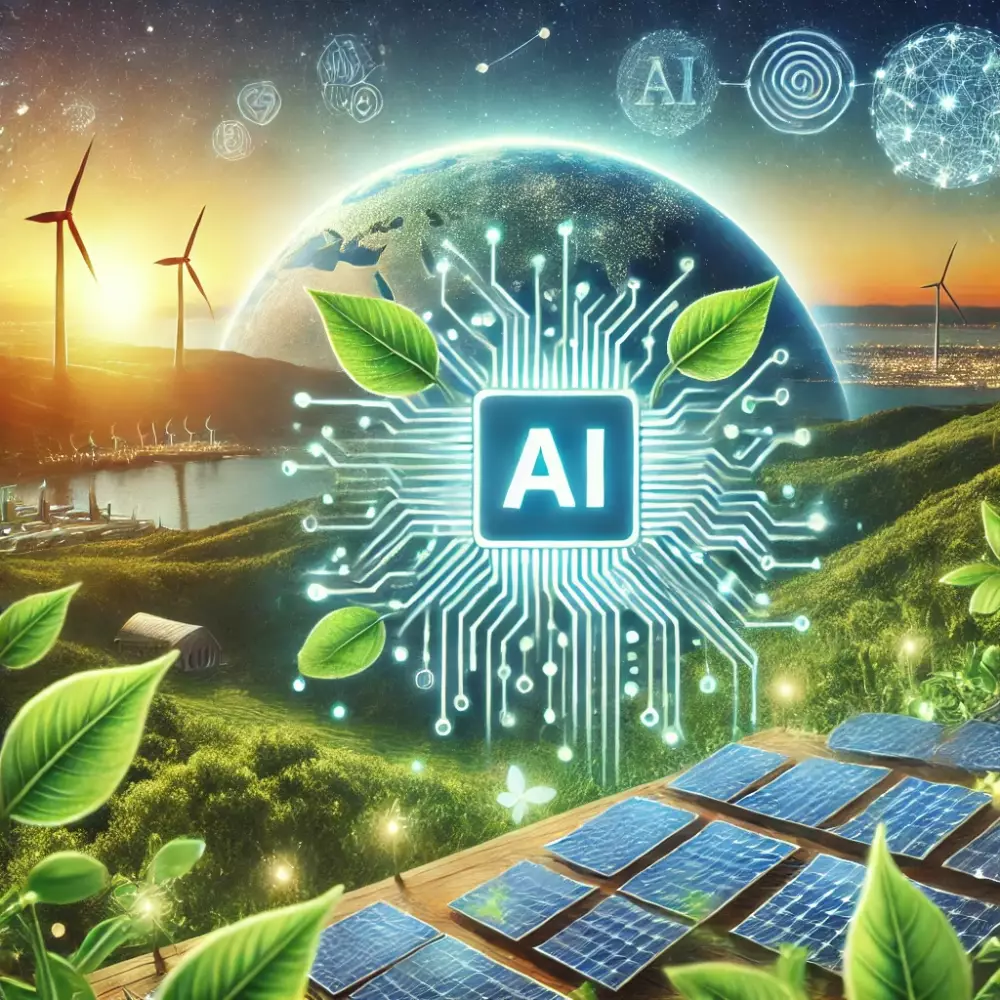
Scaling AI Sustainably: 4 Urgent Priorities
This article was collaboratively crafted by humans and AI, blending insights and precision to create a piece for your benefit. Enjoy!
Artificial intelligence (AI) is a transformative opportunity to harness technology for the greater good. However, it presents a paradox. While AI has the potential to drive a reliable, low-emissions energy future through advancements like nuclear fusion and smart grids, the computational energy demands of developing such technologies could aggravate the very problems they aim to solve.
Improving AI sustainability is a moral and practical imperative. Reducing AI’s energy and water consumption not only lowers operational costs but also minimizes its environmental impact. To scale AI responsibly, collaboration and urgency are crucial. Here are four priorities to advance sustainable AI practices:
1. Use AI Intentionally and Appropriately
AI’s potential to revolutionize industries must be balanced with an intentional approach to its application. Organizations should evaluate whether AI is the optimal tool for a given task. For instance, a generative AI (GenAI) query consumes 15 times more energy than a standard search engine query. It’s essential to assess whether GenAI is necessary or if simpler tools can meet business needs with a smaller environmental footprint.
Before launching AI projects, organizations should develop comprehensive AI business plans, addressing expected outcomes, data requirements, model demands, and resource impacts. AI must also incorporate responsibility by design—ensuring privacy, security, inclusivity, and accountability—to mitigate ethical risks and build trust. When AI isn’t the best choice, alternatives should be considered.
2. Optimize the Entire AI Lifecycle
Sustainable AI requires optimization across its entire lifecycle—from data selection and model design to training, tuning, and inferencing—as well as the end-of-life stage of equipment. While advancements in AI infrastructure, such as liquid cooling systems that reduce power consumption by 90%, are promising, efforts must extend beyond hardware.
Efficiencies can be gained by:
- Data Efficiency: Ensuring data sets are relevant and concise to avoid wasting processing power.
- Pre-trained Models: Leveraging existing models to eliminate redundant energy consumption.
- Monitoring Tools: Deploying tools to track detailed performance metrics. Currently, only 44% of enterprises monitor AI-related energy use, leaving potential savings untapped.
Strategically aligning AI model training with periods of abundant renewable energy has demonstrated the potential to cut emissions by up to 80%. Holistic monitoring and optimization are key to sustainable AI growth.
3. Drive a Cleaner Energy Future
AI’s energy demands necessitate stronger collaborations between innovators, policymakers, and global stakeholders to accelerate the transition to a low-carbon energy future. This involves:
- Reassessing low-carbon energy sources like nuclear power as part of a reliable energy mix.
- Supporting developing economies in decarbonizing their energy grids, addressing funding, sourcing, and policy barriers.
Global progress in decarbonizing energy production must be expanded to ensure equitable access to sustainable AI benefits worldwide.
4. Develop Smart Regulatory Policies
Effective regulatory frameworks are vital to sustainable AI. Policymakers and the private sector must:
- Incentivize innovation in sustainable IT.
- Monitor AI’s power consumption and emissions.
- Harmonize international standards for rapid adoption of best practices.
While some AI regulations exist, most overlook environmental sustainability. Temporary moratoriums on data centers are insufficient; instead, a holistic approach prioritizing sustainability and ethical considerations is needed. Public-private partnerships fostering radical innovation can drive AI’s full potential while protecting natural resources.
A Call to Action
To ensure AI contributes positively to global prosperity, we must collaborate holistically, share openly, and act swiftly. By prioritizing sustainability, we can harness AI’s transformative potential responsibly, safeguarding our planet for future generations.
Written by Dev Anand from Funnel Fix It Team
